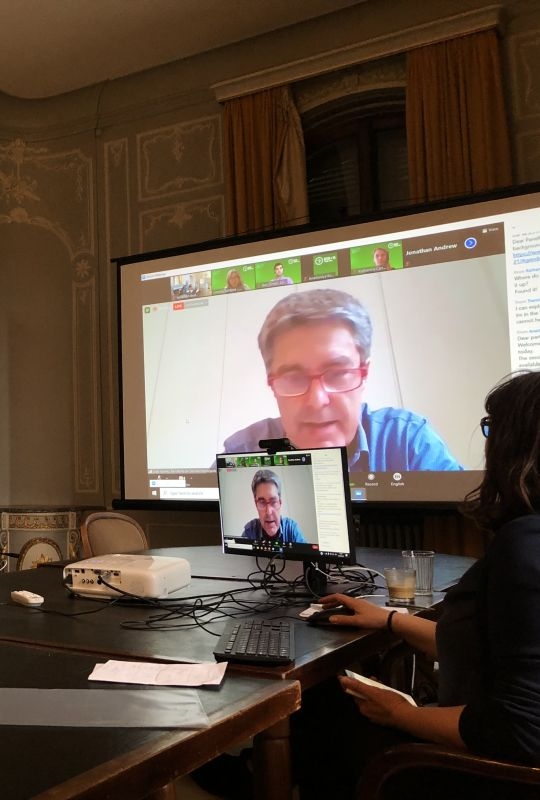Katharina Candel-Haug, Strategy Manager at Stadtwerke München, also noted how the new data protection regulatory framework in Europe (mainly the General Data Protection Regulation (GDPR)) has a major impact on the planning and delivery of projects by municipalities, citing her experience in developing mobility solutions for the city districts in Munich.
The audience had the opportunity to put forward their questions to the panel and ask for their insights and predictions regarding the evolution of smart cities. Ben Green, drawing on his work with American cities and the implementation of Internet of Things (IoT) initiatives highlighted his concerns that ‘tech solutionism’ could give rise to ill-considered projects that missed the opportunities to deliver meaningful improvements in public services while protecting the fundamental rights of those they intend to benefit. Responding to a question by the audience on the viability of universal international guidelines, Katharina Candel-Haug underscored how in Germany a collection of national, regional and local standards provided a key framework for safeguarding citizens’ human rights and ensuring projects met the necessary specification for compliance.
‘This panel succeeded in kickstarting the debate and generating further interest in how smart cities projects should integrate a human rights-based approach to their development and implementation’ says Kamelia Kemileva, Executive Manager of the Geneva Cities Hub.
‘We hope that this panel is the first step in cities’ engagement on this issue and that this initiative will foster stronger links between municipalities that can facilitate the emergence of a broad network of cities to share their knowledge and best practices’ underlines Felix Kirchmeier, Executive Director of Geneva Human Rights Platform.







